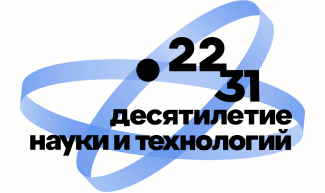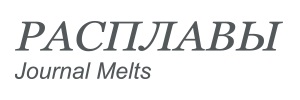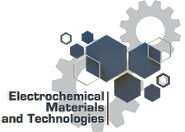This summer three postgraduate students of the second year of study at IHTE UB RAS won a competition for the best fundamental research projects carried out by young scientists studying postgraduate education (Postgraduates). The project is intended for two years: from October 2019 to September 2021. During this time, young researchers with the help of scientific supervisors have to solve a number of fundamental problems.
Anastasia Khudorozhkova‘s project Physicochemical Properties of Halide Electrolytes for Silicon Electrocrystallization is intended to form the physicochemical basis of the process for producing new functional nanomaterials based on silicon by means of molten salts electrolysis. Anastasia’s tasks include studying the surface tension and density of melts, which are promising for the construction of silicon materials of a given structure and morphology, and identifying patterns of change in the properties of homogeneous melts of alkali metal halides depending on their chemical composition and temperature. The obtained results will become the basis of the process for obtaining silicon nanomaterials of controlled structure.
Vladimir Elterman will study the physicochemical properties of the electrolyte in the range of molar ratios from 0.8 to 1.5 in the temperature range from 0 to 100 ° C, including the electrochemical activity of aluminum and the aluminum-graphene composite in the chloroaluminate ton liquid, within the framework of the project Physicochemical Properties of Chloroaluminate Ionic Liquid 1-Butyl-3-methyl Imidazolium Chloride and the Electrochemical Activity of Aluminum and Aluminum-Graphene Composite in the Test Ionic Liquid. The young scientist outlined the problem of the presence of non-conductive alumina film, which can affect the electrochemical reaction at the aluminum electrode/chloraluminate ionic liquid interface, and suggested a possible way to solve this problem by using an aluminum-graphene composite that makes it more difficult to form the aluminum oxide on the electrode surface.
The project of Alexander Davydov Development of a statistical and thermodynamic model for calculating liquidus surfaces in phase diagrams of triple salt mixtures using the example of Li, Na, K || F and Na, K, Cs || F eutectic systems is focused on developing methods of statistical theory for accounting realistic types of interactions between ions in molten salt electrolytes and modeling their physicochemical properties on this basis. The developed models have been successfully tested during description of the thermodynamic properties, as well as the melting characteristics of alkali metal halides. Alexander Davydov is a participant of other RFBR projects as well: Consideration of polarization interactions of ions in salt melts based on the charged solid sphere model and Experimental and theoretical studies of the melting diagrams of mutual fluoride-chloride salt mixtures of alkali and transition metals. In 2019, he received a scholarship from the Government of the Russian Federation for 2019–2020. In the future, the young scientist plans to apply the developed approach for the creation of a software package calculating phase equilibria and thermophysical properties in multicomponent molten halide mixtures, which are of great interest for resource-saving, safe and efficient energy, as well as nuclear technologies.




